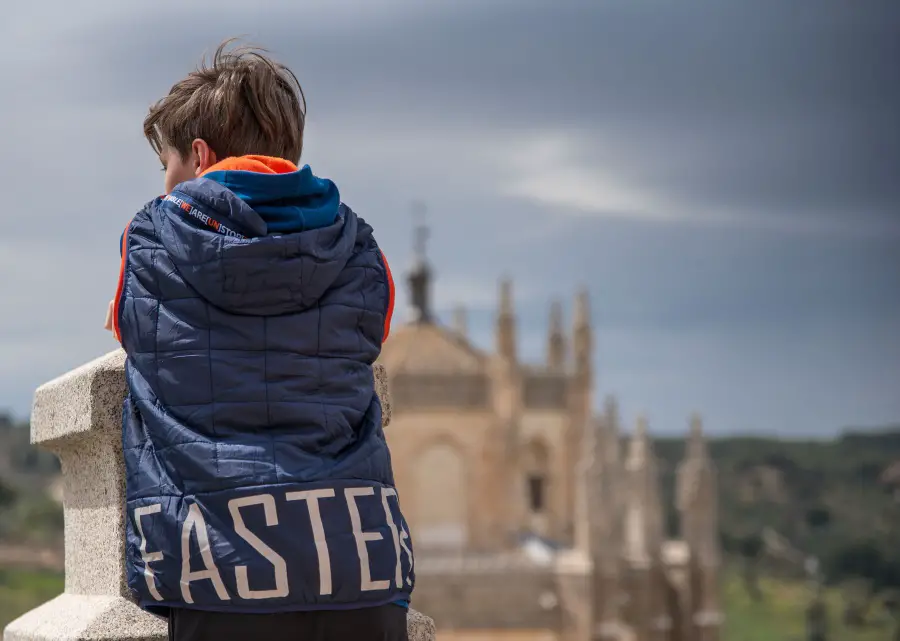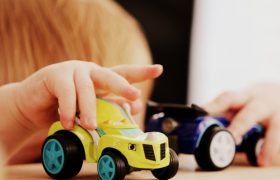What you Need to Know about Childhood Depression

When they are pregnant mothers are often gifted books about their fetus’s development and milestones for a new baby. As children age their pediatrician checks their height and weight and keeps track of their development to make sure they are physically healthy and developing skills at a typical rate. One thing often overlooked is a child’s mental health. There are very rarely any checklists that tell you what to look for, when to be concerned, or even how to tell if your child is having a problem.
Depression in children isn’t something we as a culture often like to think about much less want to discuss, but the stigma has been getting lighter recently on adult mental health issues. It is vital to realize that a child’s emotions are just as real and deep as an adult and their emotional and mental health is just as much at risk. While the rates of depression in children are rising in recent years, the discussion about what it is, what it looks like, and when to seek help haven’t caught up. By learning the signs and symptoms and what to do if a problem arises, you are going to be more efficient at helping your child should they ever develop depression.
It’s not anyone’s fault
The first thing to know about childhood depression is that just like depression in adults it isn’t anyone’s fault. It is not a sign that their home life is bad, that they are mentally weak, or that they are somehow broken or abnormal. Kids with a perfectly healthy and seemingly happy home lives can become depressed just as easily as children who are under immense stress. Even if a child has many things to be thankful for and a ton of happy experiences, they can still develop childhood depression.
Depression and many other mental illnesses can be passed down through families, so if anyone in your family suffers from depression your child is at risk. While your child may never have a problem, it’s good to know your family history so you can be aware of what may come. Make sure that you let your doctor know about any mental illnesses that are present in your first degree relatives, so they can have a general overview of your child’s familial health history.
The symptoms can be different than you expect
When most people think of depression they picture a person who stays in bed all day, unable to muster up the energy to eat, speak, or care for themselves, and while all of that can happen it’s usually not so extreme until depression has been left untreated for a long time. A child who is able to cope even a little bit with their depression can show signs still but they may not be the super dramatic ones you’re picturing.
Common signs of depression in children include difficulty falling asleep or staying asleep, changes in appetite whether a decrease or increase, mood swings, angry outbursts, refusing to go to school, a loss of interest in hobbies they used to enjoy, distancing themselves from friends, and even physical symptoms like frequent stomach aches or just feeling unwell.
While it can be difficult to bring up mental health with your child, it can be even harder to get a straight answer from them on how they are feeling, especially if they are young. They may not know how to express what they are feeling or may not know that what they are feeling is concerning. Asking direct questions may not elicit useful responses, but having a conversation can often help you suss out what is going on and why.
There is help
Depression is more than just feeling sad, it is a long term change in mood that disrupts your child ’s day to day life. Think of it less like weather and more like climate, a rainy day is weather, spring is a season. If you notice that more often than not your child is exhibiting symptoms of struggling with depression it’s time to get help.
If you are concerned about your child’s mental health it is important to bring up the conversation with your child’s doctor. If depression is caught early enough there may be interventions like therapy that can help without the need for medication.
It is also important to make sure that you seek out answers, because many symptoms of depression can overlap with other disorders both physical and mental and having a doctor to help guide you along the journey to solving the mystery can really help nail down the actual problems and lead to a treatment plan that is appropriate and helpful.
It can feel intimidating to go to your doctor with these concerns, but it is important to do so anyway. Feel confident that your doctor is interested in your child being as healthy as possible both physically and mentally. Your child’s pediatrician is well equipped to help you find resources and refer you to the type of help that will be most useful to you and your child.
 The risk is real
The risk is real
Waiting it out isn’t going to work. Depression rarely, if ever, clears up on its own, and waiting it out can do some real damage to your child’s friendships, school grades, and social/emotional development. It’s not something your child will snap out of, nor something you can punish, guilt or cajole them into overcoming.
Untreated depression in children can lead to suicide if left long enough. More common however is a change in their brain that can make depressive episodes more frequent and longer lasting throughout the rest of their life. By ignoring your child’s mental health now you could be setting them up for more problems throughout their life. Early intervention can help them learn key coping skills that will help them to recognize problems early and get treatment when needed.
When in doubt, enlist professional help. Keep a journal of your concerns and bring them up at your child’s next appointment. Your doctor may have a screening test that your child will need to take to make sure you discuss the possibility of this with them before they go. It’s important for them to know this isn’t a test like, at a school where you can pass or fail, it’s just an important snapshot of how they are feeling now.







